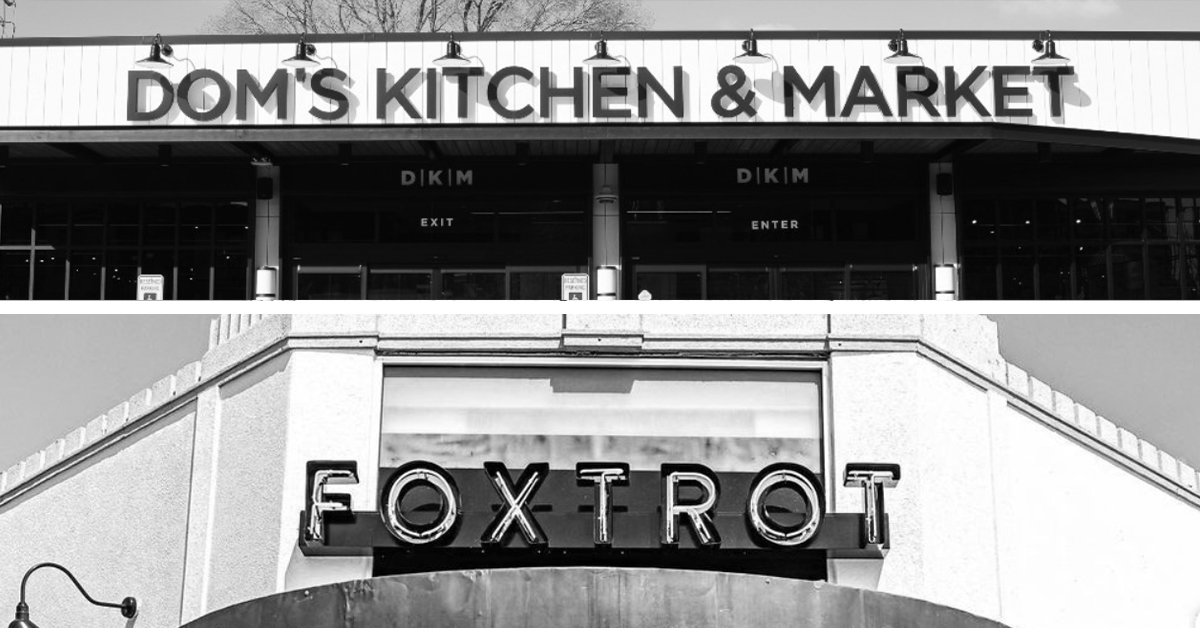Post-Foxtrot, Early Stage Brands Feel They’ve Lost A Bridge to Growth

When Outfox Hospitality abruptly shuttered its doors earlier this week, it left a lot of CPG brands caught in the fray, including many emerging brands and new product concepts. Many of them feel as if the industry has lost a major stepping stone account.
But the loss of the launchpad account also serves as an example of the ways brands have to be resilient as they search for wider retail success.
One-year-old Hotpot Queen had just locked in a distribution deal with Foxtrot after this year’s Expo West. Its products had landed in Pod Foods’ warehouses earlier this week, soon to be shipped to all 33 Foxtrot stores. Jia Liao, founder and CEO, said she learned about the news of the closure while scrolling on Instagram.
“I thought it was fake news,” she said.
But in the aftermath, she has already found new opportunities and said she is excited again about the road ahead. After a discussion with distribution partner Pod Foods this afternoon, the brand is now anticipating an expansion with Misfits Market and potentially Fresh Thyme Market, both of whom, she said, have stepped up to clear some space in their innovation set and help take on inventory from the affected brands.
“Those kinds of [retail] opportunities would be difficult to get into, but because of the situation, other retailers wanted to help out and reached out to Pod Foods,” she said. “I just feel extremely lucky, so fortunate, it’s like when God closes a door and he opens a big wide window.”
Pod Foods sent an email to brands it distributes to Foxtrot soon after the news dropped, telling them that it was “100% committed to the spirit of product innovation” and was working to redirect inventory to new retailers in the areas affected by Foxtrot’s closure.
Kathryn Shah, who runs date-sweetened chocolate bar startup Spring & Mulberry, was another founder who learned about Foxtrot’s collapse in a generic email from Outfox Hospitality. Before the brand launched in March 2022, Foxtrot had been an early target for Shah as she attempted to gain a foothold in retail.
After pitching to the retailer, a Foxtrot buyer told Shah that a $15 chocolate bar would not work in grocery, she said. “They were the first people to nudge us in another direction.”
Shah spent the next year “figuring out the economics, buying the molds, running new production, changing all of the boxes” in order to launch a smaller format at a lower price that would meet Foxtrot’s specifications, she said.
Spring & Mulberry also works with Pod Foods and is in the process of trying to shift some inventory back from Chicago to Los Angeles where the brand has a bigger retail footprint in retailers like Erewhon and other “trendy, chic, independent stores,” Shah said.
What remains unclear, however, is how much it will cost a small brand like Spring & Mulberry to move inventory around the country and who will pay for it.
In the case of sparkling adaptogenic beverage brand Heywell, which had developed a co-branded SKU with Foxtrot last year and was in the process of creating another LTO with the retailer this year, there was some communication between the brand and Foxtrot’s merchandising department immediately after the stores closed.
According to Heywell co-founder Britt Dougherty, that was likely because of the brand’s history with the retailer on last summer’s Energy + Lift Sparkling Cherry Limeade.
“They worked with us from concept through liquid development through a co-created can design,” Dougherty said.
It was so successful that heywell had another collaboration already in the works that was expected to hit stores in three weeks.
With ingredients and line time already paid for, heywell is still going to produce its new Energy + Hydrate Lemon Fizz flavor – but the company has ordered a new sleeve to replace the co-branded labels planned in conjunction with Foxtrot. The new variety will be initially released on ecommerce platforms and DTC, with the expectation that it will get picked up by some of heywell’s retail partners.
“We’re doing a pivot,” Dougherty laughed. “But honestly, thats just part of running a startup.”
What’s concerning to Dougherty, however, isn’t so much the specific retailer closing, but that much of the conversation in the last couple of days seems to be that Foxtrot’s failure is a sign that there is “no market for innovation or that we have reached peak CPG.”
“Our strong point of view is that innovation is totally fundamental to commerce,” she said. “The categories that are innovating are the categories that are growing and so even though this great mechanism for innovation has gone away doesn’t mean that there isn’t demand for it.”
According to Robert Broome, founder and CEO of fresh granola bar brand Mooski, the company’s launch at Foxtrot last year was a major “credibility driver.” Entering Foxtrot was an important initial step for the Southern California-based brand in unlocking new distribution beyond its backyard.
The account also served as Mooski’s anchor for opening up distribution centers through its partner, KeHE, which distributes to Fresh Thyme Market in the Midwest and Central Market in Texas. With that anchor now gone, Broome is wary the brand may not be able to support all of those distribution centers, particularly in the D.C., Maryland and Virginia area, because the smaller stores that pull from them will likely not generate enough volume.
Mooski’s risk is somewhat mitigated by its diversified channel and distribution strategy with a mix of online grocery as well as broadline and local distribution. While the immediate loss of 33 stores is a tough blow, he emphasized that it’s not a deadly one. He also explained that the brand can still ship product to KeHE’s DCs, but losing Foxtrot – its highest velocity account – “muddies” Mooski’s long-term outlook in certain regions.
“What has changed is [the strategy around] distribution centers we have open… let’s build them up as much as we can and make sure that if stuff goes wrong with a certain account, that we’re still good because we have other accounts that pull from them.”
Mooski had also recently invested in a new marketing and sampling program through the retailer. Broome was in the midst of that activation, having completed six out of the planned 12 demos before the news broke this week. He still has flights and hotels booked to Austin for a handful of demos planned for May, which cost the brand around $250 each, and plans to go but sample at other existing accounts in the area.
While he said he doesn’t believe the marketing efforts with Foxtrot were made totally “in vain,” he is frustrated by the lost investment. Broome emphasized that like demos, which help build a customer base and loyalty, Foxtrot itself served this purpose for many new and emerging concepts looking to grow their footprint.
“It was basically like a huge proving point for brands, not just getting in, but showing [other potential retail partners] that they are doing well there,” he said. “Brands are gonna miss that.”
While Outfox Hospitality has avoided sharing details, Broome believes it is a lesson in business fundamentals, focusing both on top-line growth and profitability, and, when all else fails, “failing responsibility.” As an emerging brand, he said it has shifted his mindset about growing the business.
“We’re probably going to be a lot more strategic with doors we open and the runway in those regions and those distribution centers versus just going after growth,” said Broome. “I have no idea why [Foxtrot] failed, but they were opening a bunch of new stores, they were expanding a lot – planning to open 50 to 100 stores – they sound like WeWork in that sense, but I guess they weren’t paying as much attention to their cash flow.”
















